-
- Global AMC MENU
- NEWS
- HEALTH
- PEOPLE
- Introduction
Professor Sung Shin, Division of Kidney and Pancreas Transplantation
“Striving to provide safe treatment through more than 100 robot-assisted kidney transplantation and research on transplant rejection.”
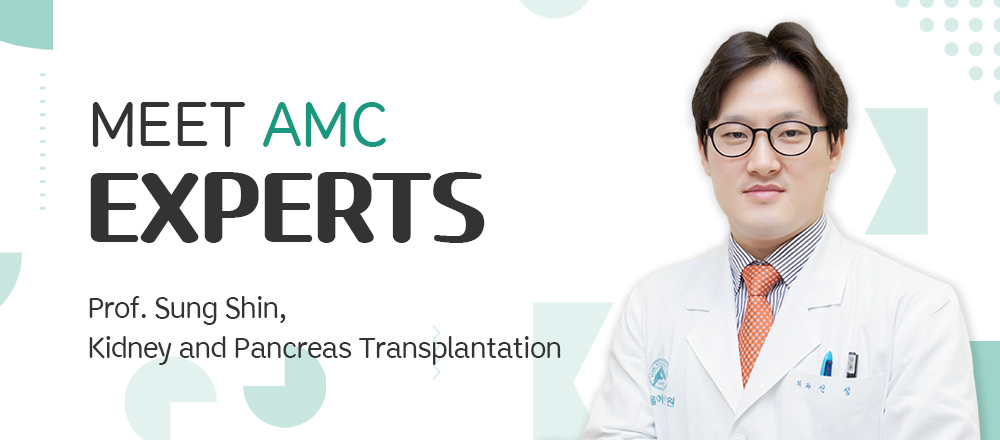
Over the past 5 years, the Division of Kidney and Pancreas Transplantation at Asan Medical Center has treated over 260 international patients from 10 countries. While patients have visited Asan Medical Center for various renal diseases, 10% of the patients were foreigners who underwent kidney transplantation due to chronic renal disease. Notably, international patients tend to prefer robot-assisted kidney transplantation for faster recovery and fewer complications. With over 7,000 cases of kidney transplantation experience accumulated, the Division of Kidney and Pancreas Transplantation has recently been actively performing robot-assisted kidney transplantation. Professor Sung Shin of the Division of Kidney and Pancreas Transplantation, who has achieved 100 robot-assisted kidney transplantation in two years and three months since its first implementation in August 2020, shares his story about international patient treatment
Could you explain your areas of treatment and research?
I am a surgeon specializing in kidney and pancreas transplantation. I perform kidney transplantation for patients with chronic renal failure, such as chronic glomerulonephritis and diabetic kidney disease. For severe diabetes patients, I perform pancreas transplantation. More recently, I have been using robot surgery to perform tumor removal and transplants. Robot-assisted surgery offers faster recovery and less risk of complications because it requires smaller surgical incisions than conventional surgery, benefiting high-risk patients.
My specialty lies in surgical procedures. However, I strive to become an ‘internal medicine surgeon’ with extensive internal medicine knowledge. This is because transplantation requires advanced microsurgical techniques for precise vascular and ureteral anastomosis, as well as immunological expertise and know-how to prevent and treat rejection.
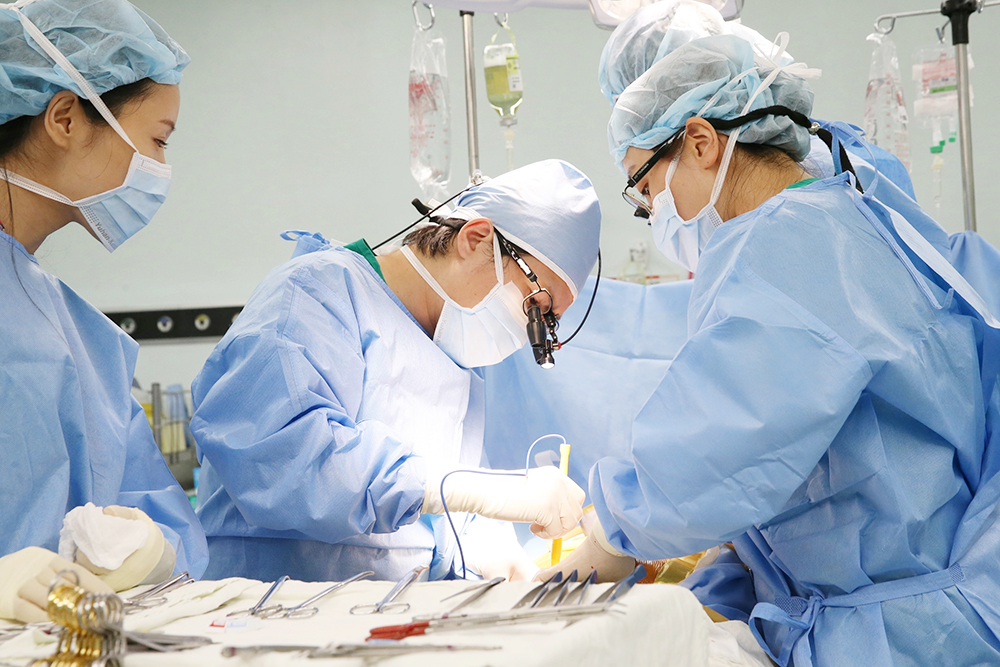
▲ Kidney transplantation team led by Professor Sung Shin is performing the 6,000th kidney transplantation
To achieve this, I am conducting continuous research in addition to surgeries. Performing around 40 transplants every month allows me to accumulate surgical expertise, and I have also won a research project from the National Research Foundation of Korea aimed at enhancing the research capabilities of clinical scientists. The research is regarding biomarkers that can non-invasively diagnose rejection and infection after kidney transplantation, working to develop a convenient approach to diagnose kidney transplant rejection, the primary postoperative concern for patients. Through this research, more than 10 patents have been applied for.
Do you have any memorable international patients?
I remember a patient in his 60s who came from Dubai for a kidney transplantation. The patient had developed end-stage renal failure due to type 2 diabetes and his son, in his 30s, was the donor. The patient’s abdominal cavity was very deep, and his blood vessels were in poor condition from atherosclerosis, causing preoperative concerns. The surgery was also challenging, but the kidney transplantation was successful. The patient received outpatient care for about a month after surgery and returned to Dubai in good health. What was impressive was that his son, the kidney donor, made in-depth inquiries about his father’s recovery and whether the kidney function had recovered even though he himself was in severe pain after the surgery. I felt that love for one’s parents is a common sentiment beyond borders, and it was an invaluable experience to share the same feeling with international patients.
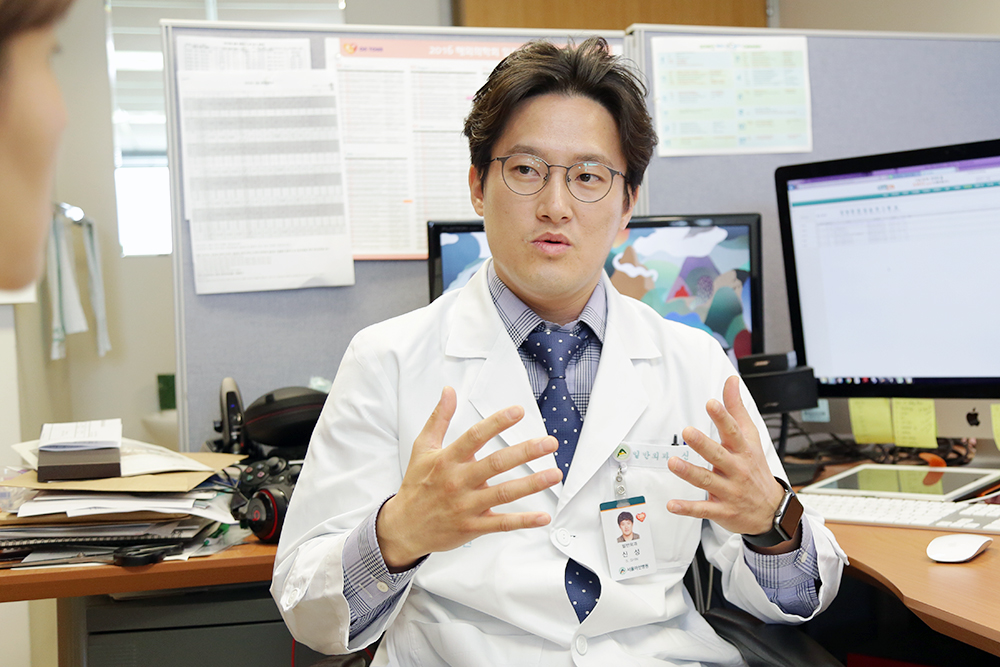
▲ Professor Sung Shin is elaborating on ongoing research
What aspects do you especially focus on when treating international patients?
To effectively treat international patients with different languages and cultures, I believe building trust through communication is a priority. I have been taking classes for English and Arabic conversation courses at AMC Academy to communicate better with patients. Even if I may not be fluent in their language, I believe speaking the same language as the patient can foster a greater sense of empathy. Since non-verbal communication, such as eye contact and gestures, can also be a powerful means of conveying sincerity, I actively utilize these methods and try communicating with patients.
What are the advantages and achievements of the Division of Kidney and Pancreas Transplantation at Asan Medical Center?
Asan Medical Center’s Division of Kidney and Pancreas Transplantation performs kidney transplantation, the only treatment option for end-stage renal failure patients. Since the first transplantation in June 1990, more than 7,000 cases have been performed until recently, improving patients' quality of life with treatment know-how accumulated for over 30 years. Furthermore, we are the first in South Kora to achieve 1,000 cases of ABO-incompatible kidney transplantation. We have accumulated the most patient experience as the nation’s first to perform 100 successful robot-assisted kidney transplantation. We were also the first to perform robot-assisted kidney transplantation for severely obese patients in South Korea, making it possible for super obesity patients, previously deemed risky for conventional surgery, to undergo a kidney transplantation safely. Additionally, we are the most active regarding robot-assisted kidney transplantation in the Asia-Pacific region, with excellent clinical results.
We also perform curative pancreas transplantation for diabetes patients. We are proud of our world-class expertise in pancreas transplantation with a one-year survival rate of 98%, surpassing renowned U.S. hospitals at 97%.
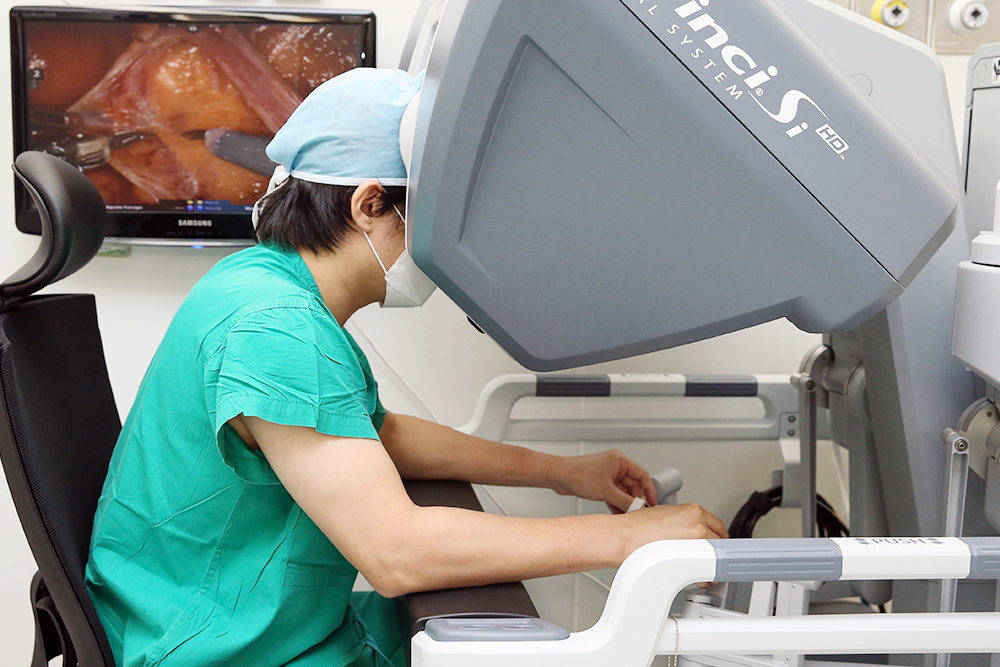
▲ Professor Sung Shin is performing a kidney transplantation using the Da Vinci robotic surgery system
Is there a message you would like to share with patients from abroad?
Asan Medical Center is at the forefront of severe disease treatment, beyond South Korea and worldwide, based on a wealth of experience in patient treatment. The Division of Kidney and Pancreas Transplantation at Asan Medical Center, leading the field of kidney transplantation, has been the first in the country to perform simultaneous kidney/pancreas, kidney/liver, and kidney/heart transplants. Every member of the division is making the utmost efforts to provide a family-like atmosphere for international patients who have come a long way to visit Asan Medical Center. I hope patients can experience top-notch medical care, find peace of mind, and recover well at Asan Medical Center.
※ 'Meet AMC Experts' features dedicated doctors at Asan Medical Center(AMC) who shed light on international patients coming a long way from home for treatment.
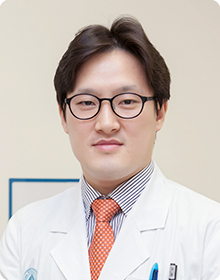
Kidney and Pancreas Transplantation
Professor Sung Shin
Specialty : Kidney Transplantation, Pancreas Transplantation, Robot Surgery(Kidney Transplantation, Retroperitoneal Tumor)
Position : Administrative Director, Kidney and Pancreas Transplantation / Professor for AMC Academy
Academic Activities : Secretary, The Korean Society for Transplantation / Audit, The Korean Study Group of Kidney and Pancreas Transplantation under Korean Surgical Society / Member of Kidney and Pancreas Advisory Group in the National Institute of Organ, Tissue and Blood Management / Published over 70 SCI-level papers in the past decade












